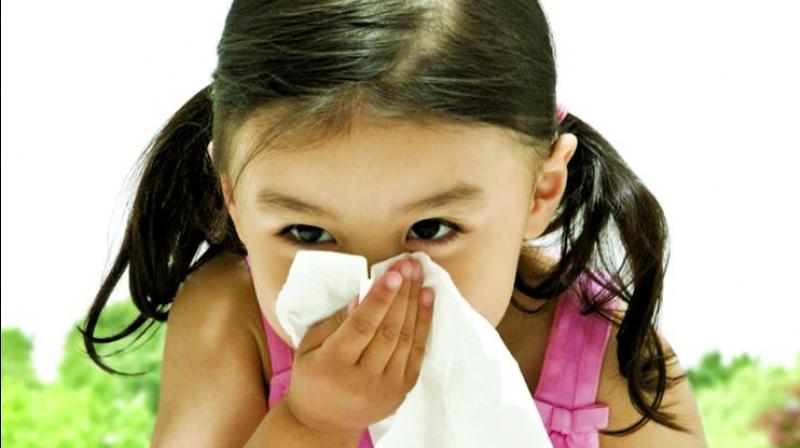Dust allergy could cause behaviour problems in kids

Hyderabad: Fifty to sixty per cent of children suffering from dust allergy were found to have attention deficit hyperactive disorder and were also poor in studies.
There was a co-relation in allergies and ADHD in children and experts said that increasing levels of dust in cities was aggravating the problem.
Around 40 per cent children suffered from dust allergies and 50-60 per cent of them developed ADHD. The initial symptoms are constant sneezing, coughing, running nose and itchy eyes, disturbing the child. But the underlying disorder of ADHD often was under diagnosed and in many cases diagnosed too late.
The child would show signs of hyperactivity, difficulty to stay focused and not be able to concentrate on or pay attention to a subject for a longer period and would have difficulty in controlling hyperactive behaviour. The onset of allergies aggravated the behavioural condition of the child which was often seen as a result of allergy.
Senior consultant pulmonologist Dr Sumant Mantri said, “In urban areas we are seeing more and more complaints of dust allergies as one out of six people are found to suffer from it. Fifty per cent of the allergy cases seen at the clinical level are due to dust, indoors and outdoors. Airborne dust reduces the quality of life both inside and outside homes and continuous exposure leads to dust in lungs and sudden lung collapse.”
Extended periods of breathing in the dust would potentially cause lung problems and this kind of a situation occurred when a person was exposed to dust for at least six to eight hours daily. Owing to this, those staying close to main roads where there was a lot of pollution by vehicles were found to suffer the most.
Interventional pulmonologist and sleep disorder specialist at Apollo Hospitals Dr Vijay Kumar C. said, “The concentration levels of dust are seen more at lower levels affecting children the most. This has been one of the triggers for mood disorders, short temper and also leading to excessive day time sleeping in ADHD children. It increases their susceptibility to infections and this compromised condition makes them vulnerable.”
New forms of immunotherapy were considered for those suffering severely. There was poor response to other medical approaches, said specialists. Immunotherapy was for those who had co-morbid or additional disease conditions and also complications.

